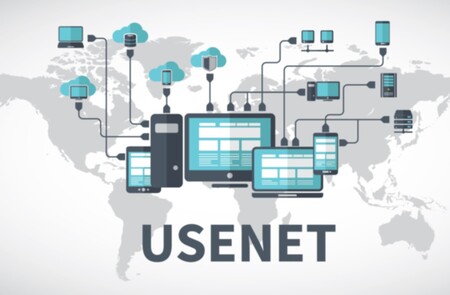Maybe you’ve heard of Usenet, but unless you were a college student in the 1980s, you probably haven’t. Usenet is basically the world’s first version of the world wide web, or the internet. Today, we use the internet to search for information and to connect with other people. Well, this is exactly what Usenet did back in the 1980s— long before there ever was such a thing as the internet– and this time-tested technology is still available today.
The Internet Before The Internet
Everyone knows that before there was the internet, people had to share information the old-fashioned way: by calling each other on the phone or writing and sending letters. Students also researched information by visiting the library and wrote papers either by hand or typed them out on typewriters before computers were widely available. In the late 1970s through the 1980s, computers were mostly available on college campuses, and this is exactly where Usenet was created. Two Duke University graduate students created a way for people to send information to others through their computers.
Throughout the ‘80s, many colleges and universities all over the United States were using this server giving college students a new way to communicate. There were now academic discussion groups that allowed students to talk about different subjects in depth.
What Is Usenet Like Today?
Did you know that you can still access Usenet today? Similar to internet services, you have to purchase it through a service provider. Today it’s still fairly similar to what it was in the ‘80s, but unlike some social platforms in the past, Usenet has actually updated to keep up with current trends.
Content
Back in the ‘80s, the only type of content that you could post and access through Usenet was written (or typed) content. Now you can access videos, audios, and photos (all called binary files) in addition to text. All of this content can be searched, accessed, and downloaded in a secure way. A lot of the user-generated content on Usenet is not as heavily censored, making this an ideal platform for content creators who feel that traditional social platforms stifle their voice and creativity.
Usenet also comes with its very own search engine, called a newsreader. It’s here where you’ll type in whatever kind of content you’re looking for. Some Usenet service providers include a newsreader in your subscription, while others will require you to purchase it separately.
How Usenet Influenced Social Media Today
Many terms we use today actually originated from or were influenced by similar terms from the early days of Usenet.
Newsgroups = Forums
Usenet is made up of different discussion groups called newsgroups. Newsgroups in the ‘80s were very similar to the discussion forums we’ve seen on websites of the early 2000s and even now. Usenet’s newsgroups today are more similar to Google Groups, though they are not exactly alike.
Emoticons = Emojis
Before we had emojis, we used to share our feelings with emoticons such as ‘“:-) “ for a smiley face, “:-( “ for a sad face, and “ <3 ‘“ for a heart. This is something else that actually predates the internet; first appearing on Usenet by a student from Carnegie Mellon University.
Acronyms
Since the 2000s, we’ve been using what some may refer to as “text talk”, using acronyms such as LOL for “laugh out loud”, instead of writing out the entire word (although these days we use emojis more than anything). This “text talk” also originated from Usenet. Phrases such as ROFL, BRB, and FAQ were all seen in various newsgroups on Usenet in the 1980s.
It may be impossible to believe that there was a way people could share information through computers at a time before the internet and even before everyone owned a computer. It’s even harder to believe that young adults in the 1980s were using emoticons and the phrases “ROFL” and “BTW”— but it happened, and it’s all thanks to Usenet. Who knows what the internet would have been like today if it wasn’t for Usenet!
Follow Techdee for more!





